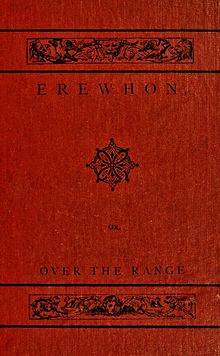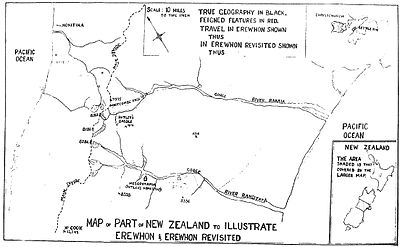인(仁)에 관한 세 번째 이야기다.
자공과 공자의 대화다.
“만일 널리 백성에게 베풀고 능히 대중을 구제한다면 어떠합니까? 인자(仁者)라 할 수 있겠
습니까?”
“어찌 인자(仁者)에 그치리오. 성인(聖人)이라고 할 수 있을 것이다. 요순(堯舜) 같은 사람
도 부족함을 느낀 경지라 할 것이다.” (논어 6편28장))
子貢曰, 如有博施於民 而能濟衆 何如 可謂仁乎
子曰, 何事於仁 必也聖乎 堯舜 其猶病諸
공자는 박시제중(博施濟衆)을 인(仁)의 최고의 목표라고 말하고 있다.
그 당시의 왕조시대를 생각하면 성군(聖君)이 인정(仁政)을 베풀어서 모든 사람이 가난이나
폭정에 시달리지 않도록 하는 것을 최고의 이상으로 하고 있는 것이다.
그 인정(仁政)의 내용을 요즘 말로 표현하면 ‘주고 받는(give and take) 방식’을 넘어서서 모
든 사람의 생활을 사회가 보장하는 세상을 꿈꾸는 것이다.
이른바 대동(大同)세상이다.
불자(佛者)들에게 매우 익숙한 무주상보시(無住相布施)는 박시제중(博施濟衆)의 정신과 실
천을 보다 심화시킨 경지를 나타낸다.
과연 사회와 세상의 성화(聖化)를 꿈꿀 수 있을까?
과거에는 꿈같은 이야기였지만, 요즘은 지평선 너머로 약간은 보이는 듯하다.
물질적 준비와 의식(意識)의 준비가 함께 이루어지면 사회안전망의 구축을 향한 획기적 실
험들이 이런 사회를 향한 보편적인 걸음으로 될 것이다.
-
유가(儒家)의 박시제중(博施濟衆)이나 불가(佛家)의 하화중생(下化衆生)은 베푸는 주체와
받는 객체가 분리되는 표현인데 비해 이보다 한 발 더 나아간 표현이 있다.
그것이 홍익인간(弘益人間)이다. 주체와 객체가 분리되지 않는 표현이다.
그리고 이것을 우주자연의 리(理)로 파악하여 그것을 인간 세상에서 실현하겠다는 바람이
재세이화(在世理化)다.
우리의 건국이념인 홍익인간(弘益人間)과 재세이화(在世理化)는 위대한 사상이다.
인간과 자연의 분리와 인간중심적인 문명이 생태적 재앙으로 이어지는 현실에서 홍익인간
(弘益人間)을 홍익만유(弘益萬有)로 확장한다면, 21세기 문명의 방향을 제시하는 가장 보편
적인 최고의 목표라고 할 수 있다.
그런데 지금 우리의 현실은 어떤가?
극심한 양극화가 우려되는 이기적인 각자도생의 세계 10위권의 경제대국, 핵무기와 SLBM
(잠수함발사탄도미사일)을 가진 가난하고 시대착오적인 세습왕조. 남북의 현실이다.
이 위대한 정신을 지닌 우리 공동체가 그 정도(正道)로, 본류(本流)를 찾아 일변(一變)할 수
있다면, 사상과 문화의 강국으로 되어, 아직도 지배적인 세계의 패권 투쟁의 질서를 그 근본
에서 바꾸는 진원지가 될 수 있는 꿈을 꿀 수 있다. 나는 최고의 이상적인 사회를
- ‘줄 수 있는것이 있고,
- 주고 싶은 마음이 있어,
- 주는 것만으로 성립하는 사회’라고 생각한다.
서세동점의 제국주의가 세계를 제패하던 격변기에 우리 공동체가 꿈꾸었던 ‘개벽’이라는 말
을 사용해서 이 이상을 음미해 본다.
첫째 줄 수 있는 것이 있어야 한다. 총수요를 넘어서는 총공급이 가능해야 한다.
이것이 물질 개벽이다.
이것을 가능케한 것이 자본주의였고, 그 동력은 과학기술의 발전과 해방된 개인의 이익과
경쟁이었다.
지금 논의가 시작되고 있는 기본소득을 비롯한 사회안전망의 획기적 구축방안도 튼튼한 물
적 토대가 있어야 가능하다.
자본주의 시장 경제의 건강성과 효율성의 조화야말로 물적 토대를 튼튼하게 하는 기초다.
실물경제의 흐름이 갖는 자본주의 시장의 복합성을 이해하지 못하고, 정의를 구현한다고 국
가가 지나치게 개입하는 것은 자칫 시장의 자율성과 활력을 떨어트려 어렵게 구축한 물적
토대를 허물어트릴 위험이 있다.
환상을 부추기며 실제로는 권력쟁취를 위한 포퓰리즘을 경계하는 이유다.
둘째는 주고 싶은 마음이 넓어져야 한다.
총체적 물량은 풍부해졌지만 자기중심적인 탐욕이 수그러들지 않으면,
불평등과 양극화가 심해지고 생태계의 조화를 깨트림으로서 생태적 재앙에 직면하는 위기
를 낳는다.
각자도생의 차가운 이익과 경쟁을 넘어, ‘자아실현과 우애’라는 동기로 비약적으로 발전하
는 인공지능을 비롯한 과학기술을 활용하여 물질적 토대를 튼튼하게 할 수 있을까?
그 바탕에서 주고 싶은 마음 즉 박시(博施) 보시(布施) 홍익(弘益)의 마음이 커지고 소비 위
주의 물질문명에서 단순소박한 삶의 풍요를 즐기는 정신문명으로 전환하는 것만이 위기를
벗어나 인류가 새롭게 도약할 수 있는 길로 보인다.
이것은 법규나 윤리도덕규범으로 강제될 수 있는 것이 아니다.
자신의 필요를 충족시키고 남는 부분을 풀어놓는 것이 기쁨으로 되는 자발적이고 자유로운
마음에 의해서 이루어지는 것이다.
이것이 정신개벽이다.
셋째는 물질개벽과 정신개벽이 어울려 제도화됨으로서 사회의 성화(聖化)가 완성되는 것이
다.
주는 것(풀어놓음)의 순환 과정에서 자신도 자연스럽게 받게 되는 사회 시스템을 만들어가
는 것이다. 선물(膳物)의 사회가 보편화되는 것이다.
자본주의를 평화적이고 무리 없이 넘어서는 것이다.
국경이나 소유도 자연스럽게 사라져갈 것이다.
이것이 제도 개벽이다.
-
대중들에게 줄것이 있어야.
서로에게 주고 싶은 마음이 교육돼야.
물질개벽과 정신개벽의 제도화.
꿈같은 이야기이지만, 혼돈과 위기의 시대일수록 어둠의 악순환에 묻히지 않기 위해서는 밝
은 이상을 마음에 품고 그것을 북극성(北極星) 삼아 한발 한발 나아가는 것이 필요하다.
그런데 이런 유장(悠長)한 꿈을 실현하는 첫 단추로 반드시 통과해야할 관문이 있다. 요즘
이곳저곳에서 터져 나오는 여야를 막론한 정경유착의 이권카르텔과 독점 그리고 위선과 부
패를 뿌리 뽑아야 한다. 개혁주체의 정치-도덕적 권위가 어느 때보다 요구된다.
대선 과정의 치열함 속에서 치부(恥部)와 환부(患部)가 들어나는 것은 하나의 기회로 된다.
자유민주주의가 갖는 장점의 하나라고 생각한다.
도덕적 정치적 권위를 갖는 개혁 세력이 새 정부를 구성함으로서 새로운 문명의 물꼬를 틀
수 있도록 국민이 집단지성을 발휘하기를 간절하게 기도하는 심정이다.



